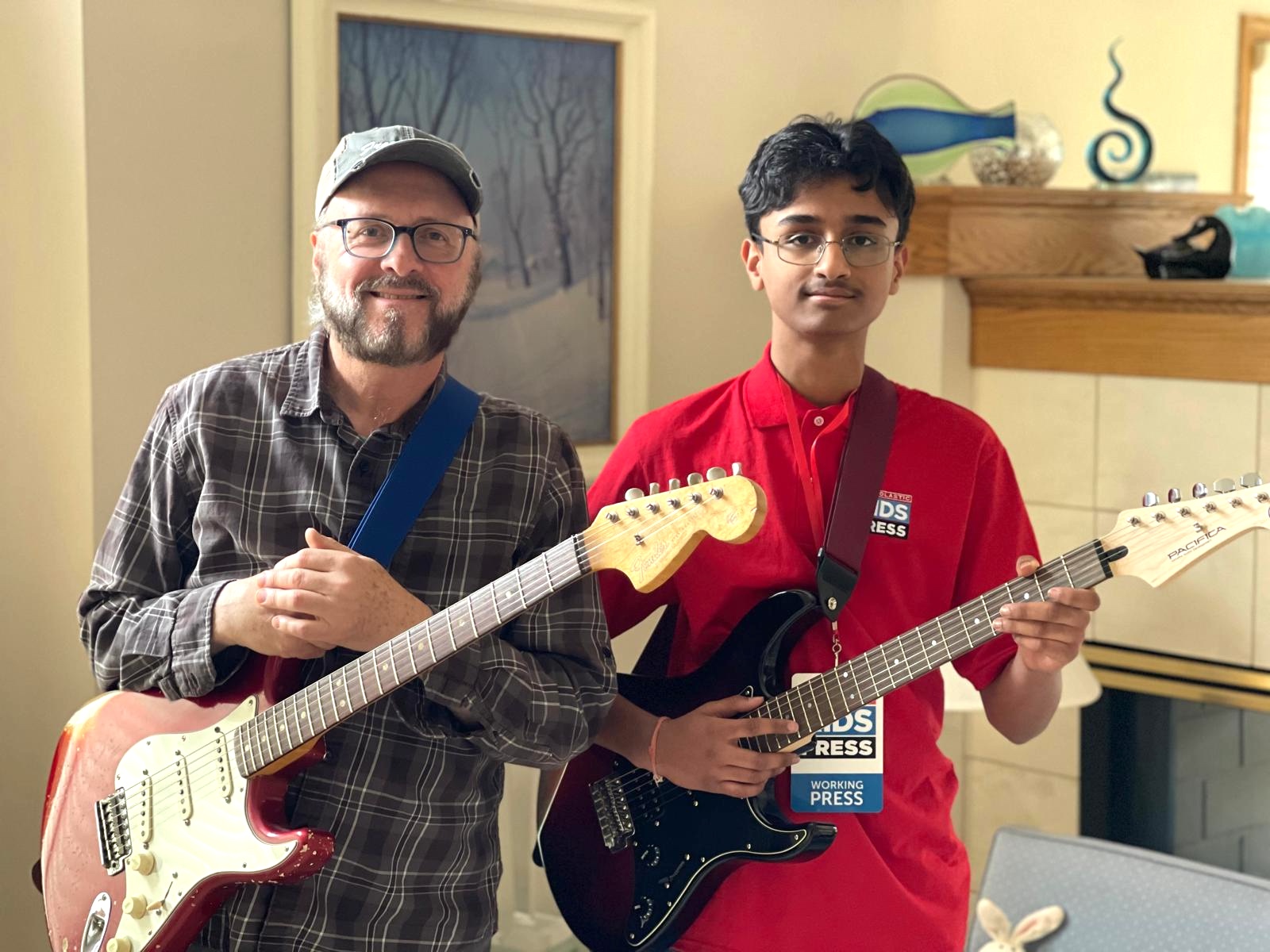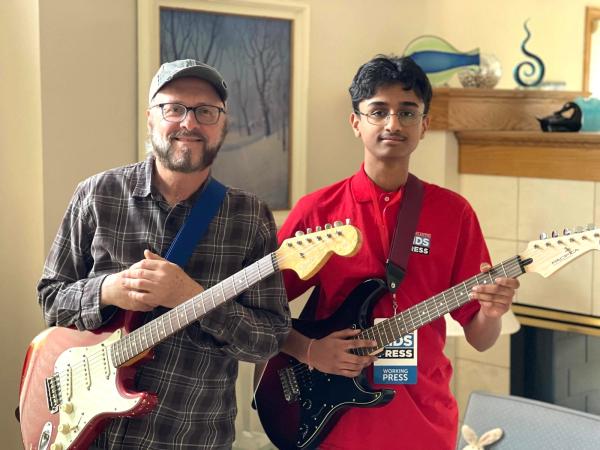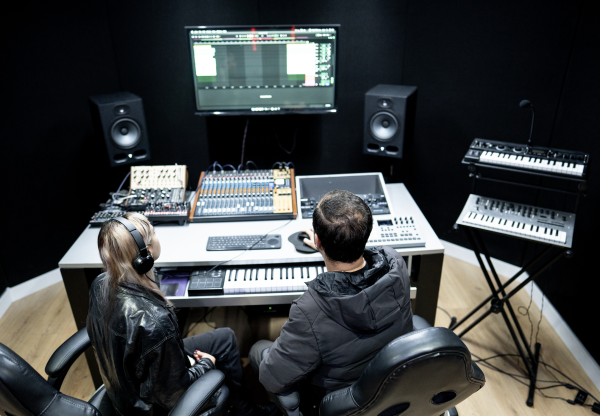KID REPORTERS’ NOTEBOOK
How Will Artificial Intelligence Affect Music?


Adi with Karl Swartz, a musician based in the Minneapolis-St. Paul area
In the 1920s, the record player revolutionized music. For the first time, people could listen to their favorite music at home. Today, Artificial Intelligence (AI) is changing the way we create and listen to music.
I asked Karl Swartz, a guitarist and music instructor in the Minneapolis-St. Paul area of Minnesota, how he thinks AI will affect the music world. His rock band, the Minstrel’s Bazaar, is releasing an album later this year.
“I think rap, hip-hop, pop, and country music will use AI a ton,” Swartz told me. “There is software now that can create drums for songs. And AI-generated guitar and saxophone music [has] been sounding better lately.”
A recent report by the research company Market.us found that revenue from Generative AI in the music business is expected to grow considerably in the decades ahead. Generative AI can instantly produce new content from already existing audio, video, and other data.
But there are concerns. Tennessee is the first state to pass a law protecting musicians against Generative AI. The Tennessee law would make it illegal to manipulate a performer’s voice without permission.
Swartz points to other risks associated with AI. “Sadly, the upgrade of technology may lessen the real skill of artists,” he said. “People can sing badly but rely on auto-tune to fix it.”

Artificial Intelligence is already changing music. How do people feel about that?
THE PROS AND CONS OF AI
Students I spoke to expressed concerns about plagiarism, lost jobs, and more. Anmol Tripathi, a student at the University of Minnesota, sees both benefits and risks with AI. “It’s an amazing tool to aid creators in refining their work, at a considerably cheaper price,” the music lover told me. “The problem with it in music, though, is that it has made it very easy to distort an artist’s foundational music blueprint, which can [potentially damage] an artist’s work.”
Can AI duplicate the human emotion behind music? No, says Krishna Rathnavel Pandian, a 12-year-old pianist. “Music is something that comes from within you,” he said. “AI doesn’t have that kind of feeling.”
Sriharsha Rajalapudi, another 12-year-old pianist, points to a potential downside for people’s livelihoods. “We can’t just have AI take over so many people’s jobs, careers, and dreams,” he said. What do you think?
